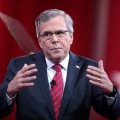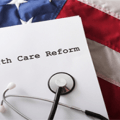 The number of uninsured American adults continued to drop during the first quarter of 2015, the lowest number since the start of the Affordable Care Act, a new study has found.
The number of uninsured American adults continued to drop during the first quarter of 2015, the lowest number since the start of the Affordable Care Act, a new study has found.
The latest Gallup Healthways poll showed the uninsured rate declined from 12.9% in the previous quarter to 11.9%.
The peak percentage of U.S. adults without insurance was 18% during Q3 of 2013, but has majorly decreased since Affordable Care Act took effect in early 2014.
Commonly referred to as “Obamacare,’’ the Affordable Care Act was designed to reduce the number of uninsured Americans by offering affordable coverage, regardless of pre-existing conditions. It requires most people to have a health insurance plan or pay a penalty.
While a falling unemployment rate may have also contributed to the decline in the number of people without insurance, pollsters said the implementation of Obamacare had a greater impact. Prior to the recession in early 2008, the uninsured rate stood at 14.6%.
The rate of uninsured has dropped in every major demographic, except for some low-income Americans and minorities.
Still, the percentage of uninsured Americans with an annual household income of less than $36,000 decreased by 8.7% since the end of 2013. It also dropped 8.3 points among Hispanics and 7.3 points among blacks.
Even with the gains in insurance rates, low-income adults and Hispanics have the highest uninsured rates.
About 30% of Hispanics and 22% of low-income Americans have no health insurance, compared to 13.6% among blacks and 7.7% among whites.
Among those earning more than $90,000 a year, only 3.5% lack health coverage.
The poll also found that among 18- to 64-year-olds, 43.3% had coverage through their employer, 21.1% had a self-funded plan, 9% had Medicaid, 7.3% had Medicare and the rest had insurance through other means.
People ages 65 and older were excluded from the analysis because most are covered through Medicare.
Pollsters expect even more people will obtain health insurance in the months ahead given that the Obama administration created a special enrollment period from March 15 through April 30 for people filing their taxes who realize must pay a fine for not having health coverage in 2014.
In addition, more people could sign up as more states choose to expand Medicaid.
Results were based on telephone interviews with 43,575 randomly selected U.S. adults conducted Jan. 2 to March 31 as part of the Gallup-Healthways Well-Being Index survey. The margin of error was plus or minus 1 percentage point.





